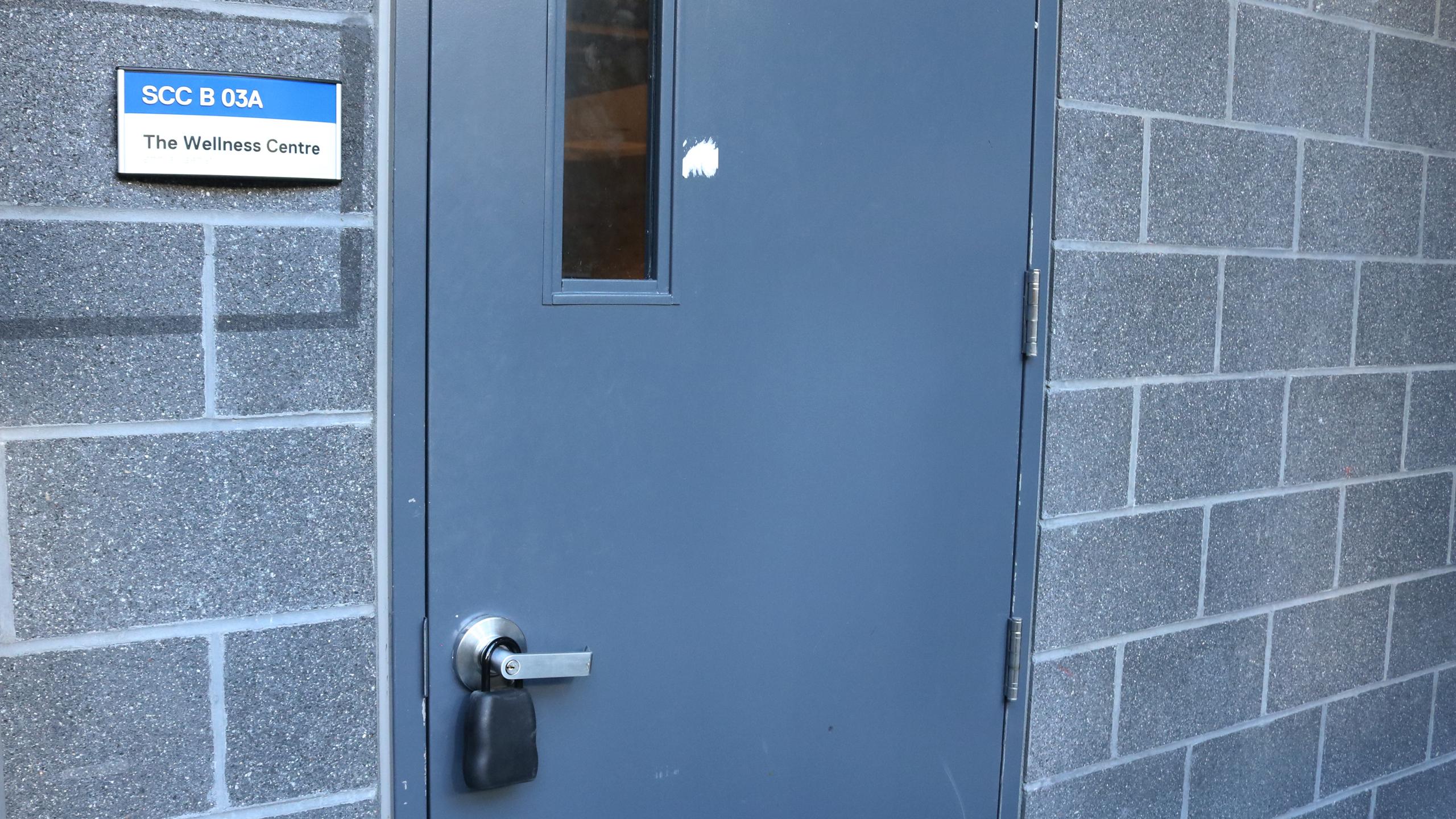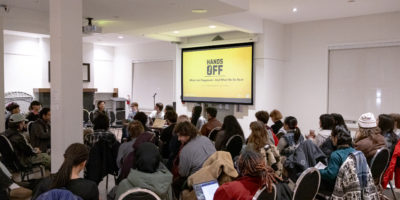By Emma Buchanan
The Ryerson Students’ Union (RSU) is planning to re-open the Wellness Centre by the end of February with a chaplaincy despite not reaching an agreement with Ryerson services.
The Wellness Centre, which originally opened in February 2018 after being delayed three times, ceased operations at the end of the winter semester the same year.
The Eyeopener previously reported the space was being used as a storage room and workspace for the students’ union. An RSU employee told The Eye the centre was also being used as a “hang out” place.
A chaplaincy was originally planned to be a part of the Wellness Centre in 2017, but was not in place by the centre’s opening in February 2018. Then-RSU president Susanne Nyaga told The Eye it was not ready in time because of opening delays.
Current RSU president Ram Ganesh said he hopes a chaplaincy will be part of the re-opening of the Wellness Centre. A chaplaincy is a religious counselling service.
Yasin Dwyer, the chaplain for the Muslim Chaplaincy at Ryerson (MC Ryerson), said he has not received any formal update about the Wellness Centre, other than “on-and-off conversations” with the RSU over the course of a year and a half. The chaplaincy was set to open in the Wellness Centre two years ago, but relocated due to delays.
“We really haven’t received a lot of clarity from the [RSU] concerning our role within the centre or if that space…will even be used for a Wellness Centre,” Dwyer said.
The MC Ryerson is currently based out of the First Evangelical Lutheran Church on Bond Street. Dwyer said they plan to stay there until they are approached with a formal agreement from the RSU.
According to the chaplain, between 10-12 students per week use the MC Ryerson’s confidential counselling sessions.
“Our interest…is to have a safe, confidential space”
In addition to counselling, Dwyer said MC Ryerson provides mentorship, spiritual study groups and accommodation advocacy for religious students on campus. Dwyer said his service is open to anyone regardless of religious background.
“Primarily, our interest in the Wellness Centre is to have a safe, confidential space [where] students at Ryerson could identify with our service,” he said.
Ganesh said a special project assistant was working with multiple chaplaincies through the Multifaith Association at Ryerson (MFAAR) this past summer. The assistant worked with MFAAR on a Memorandum of Understanding (MoU).
The MoU is an informal document outlining a set of rules about the role of the chaplaincies in the Wellness Centre, as well as their relationship to the university and the RSU, according to Ganesh.
Dwyer said the MoU has been a working document between the chaplaincies and RSU since 2017.
Ganesh said a formal agreement between the chaplancies and the RSU was attempted two years ago. “We couldn’t really bridge the gaps, but now it seems we have a more concrete understanding, and they’re more willing to work on our schedules,” Ganesh said.
According to Ganesh, the union is also looking to hold training programs with Gallivan Student Health & Wellness, the RSU partner for health and dental insurance.
“We haven’t received a lot of clarity from the [RSU] concerning our role”
Ganesh said he was hoping to work with health and dental plan administrator Chris Brown for similar training sessions in the centre.
“Our hope was that, when we’re ready to launch, we could have him run a few sessions and work with external partners like [Gallivan Student Health & Wellness] to bring their resources,” he said.
Brown confirmed he had one meeting with Ganesh and the executive team in December 2018, but said he didn’t know about any future plans for the Wellness Centre.
Ganesh said the Wellness Centre is going to have an entirely new framework. “Tuesday mornings are yoga mornings, Wednesday evenings are therapy dog sessions, Thursday mornings are chaplaincy sessions, and then Fridays are…financial literacy sessions,” he said.
According to the president, part of the $16,250 budgeted for the Wellness Centre in the 2018-19 RSU budget was used to pay a special project assistant (SPA) during the summer. The remainder will be used when programs start.
The SPA is working on partnering with Zone Learning so startups can use the centre as a “co-working space,” said Ganesh.
Zone Learning did not respond to a request for comment in time for publication.













Leave a Reply